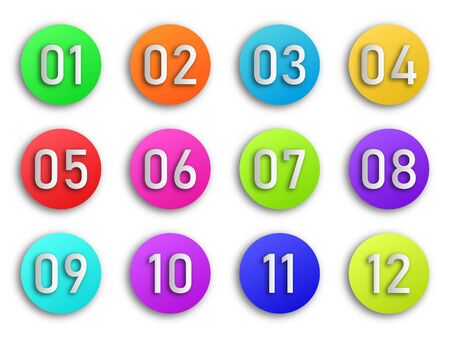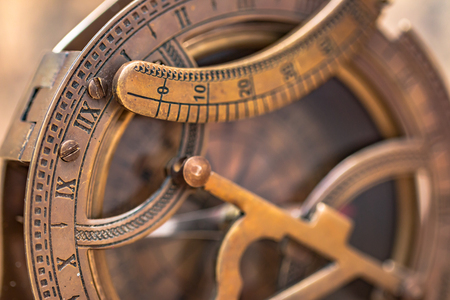Introduction to the Astrological Houses
Astrology has long captured the British imagination, weaving its way through centuries of culture, literature, and personal belief. At the heart of this ancient practice lies the birth chart—a celestial map uniquely tailored to each individual. Within this chart, the twelve astrological houses serve as foundational pillars, each one representing a different sphere of life experience. The concept of these houses can be traced back to Hellenistic astrology, which flourished in the Mediterranean region and gradually became embedded in Western traditions. Over time, British astrologers have played a significant role in interpreting and contextualising these houses, adapting classical understandings to reflect local customs and social dynamics. Structurally, the houses are arranged in a circular pattern around the chart’s wheel, beginning with the Ascendant on the eastern horizon. Each house occupies a specific segment, sequentially numbered from one to twelve, and is associated with particular themes such as relationships, career, home life, or spirituality. These divisions allow for a systematic exploration of how planetary placements influence various aspects of an individuals journey—offering a nuanced perspective that continues to resonate within contemporary British society.
2. Historical Origins and Evolution of the House System
The roots of the astrological house system can be traced back to the ancient civilisations of Mesopotamia, Egypt, and Greece. Early texts such as the Hellenistic astrologers’ works and Ptolemy’s Tetrabiblos reveal that the division of the sky into twelve segments—what we now call houses—served not only as a technical tool for chart interpretation but also as a reflection of prevailing philosophical and cosmological views. The concept was further refined during the Roman era, with different schools proposing various methods for calculating house cusps.
Classical Foundations
The classical origins of the house system are rooted in observing how celestial bodies traversed the sky in relation to the horizon and meridian. Astrologers assigned symbolic meanings to each segment based on diurnal movement, with associations drawn from mythology, daily life, and social structure. For instance, the first house (Ascendant) was linked to self and beginnings, while the tenth (Midheaven) signified career and status.
Early Texts and Interpretations
| Source | Contribution to House System |
|---|---|
| Ptolemy (Tetrabiblos) | Popularised the quadrant division; associated houses with life themes |
| Firmicus Maternus (Matheseos Libri VIII) | Emphasised the psychological aspects of houses; detailed house significations |
| Vettius Valens (An Anthology) | Provided practical examples of house delineation; described timing techniques |
The British Adoption and Adaptation
Astrology found fertile ground in Britain during the medieval period, largely through translations of Arabic and Latin texts. Scholars such as William Lilly (author of Christian Astrology, 1647) played a pivotal role in integrating continental ideas with local customs and language. In Britain, house systems were debated vigorously—Placidus became especially popular due to its mathematical rigour and adaptability to Britain’s northern latitudes. Over time, British astrologers developed unique interpretations that reflected cultural concerns: class structure, inheritance, religious affiliation, and even weather prediction.
Key House Systems in British Practice
| House System | Main Features | British Usage Contexts |
|---|---|---|
| Placidus | Time-based division; sensitive to latitude differences | Favoured by most traditional British astrologers since 17th century |
| Equal House | Each house spans exactly 30 degrees from Ascendant | Simpler calculations; used in educational settings and by beginners |
| Koch & Regiomontanus | Alternative mathematical approaches to cusp calculation | Occasionally used by modern practitioners seeking precise results for high-latitude charts |
This historical evolution set the stage for a distinctly British approach to astrological houses—one balancing classical tradition with local innovation and practicality. Understanding these origins is essential for appreciating both the continuity and diversity in contemporary British astrology.

3. The Meanings and Themes of Each House
The twelve astrological houses form the backbone of a natal chart, each representing a distinct sphere of life experience. In this section, we undertake a systematic exploration of the core significance, attributes, and planetary rulerships associated with each house, while considering nuances relevant to British perspectives and cultural context.
1st House: The House of Self
Core Significance
This house governs identity, personal appearance, and the impression one makes on others. It symbolises the mask we wear to face the world.
Attributes & Rulership
Ruled by Mars and Aries, it embodies initiative and individuality. In British culture, the 1st House often relates to personal presentation, manners, and that understated confidence so characteristic of British reserve.
2nd House: The House of Value
Core Significance
Concerns material possessions, financial security, and self-worth.
Attributes & Rulership
Governed by Venus and Taurus, it reflects attitudes towards money and resources. For Britons, property ownership and prudent saving are classic themes here.
3rd House: The House of Communication
Core Significance
This house oversees communication styles, siblings, local travel, and learning.
Attributes & Rulership
Ruled by Mercury and Gemini. Emphasises wit and articulation—traits often celebrated in British literature and banter.
4th House: The House of Home
Core Significance
Represents family roots, home environment, ancestry, and emotional foundations.
Attributes & Rulership
Cancer and the Moon preside here. Home is quintessentially important in British culture—from cosy cottages to Sunday roasts around the table.
5th House: The House of Creativity
Core Significance
This house rules creativity, romance, children, leisure pursuits and self-expression.
Attributes & Rulership
The Sun and Leo lend vibrancy. It’s the domain of theatre (think Shakespeare), art galleries and British festivals alike.
6th House: The House of Service
Core Significance
Covers daily routines, health, work ethic, service to others and pets.
Attributes & Rulership
Mercury/Virgo influence means precision. The famed British work ethic and NHS reflect this house’s themes of duty and wellbeing.
7th House: The House of Partnerships
Core Significance
Governs committed relationships—marriage, business partnerships—and open enemies.
Attributes & Rulership
Venus/Libra bring balance. This house highlights social contracts; think civil partnerships or the traditional British wedding ceremony.
8th House: The House of Transformation
Core Significance
Themes include shared finances, inheritance, intimacy, transformation, and taboos.
Attributes & Rulership
Mars/Pluto/Scorpio preside here. Matters such as estate planning or embracing change resonate strongly in the context of generational legacies in Britain.
9th House: The House of Exploration
Core Significance
This house is about higher learning, philosophy, travel abroad, law, and belief systems.
Attributes & Rulership
Sagittarius/Jupiter rule with optimism. It echoes Britain’s historical passion for exploration—from grand tours to global curiosity.
10th House: The House of Career
Core Significance
Pertains to vocation, public reputation, ambition, authority figures (including parents).
Attributes & Rulership
Capped by Saturn/Capricorn. Reflects societal standing—whether climbing the corporate ladder or serving in public office (the Houses of Parliament themselves!).
11th House: The House of Community
Core Significance
Covers friendships, group affiliations, aspirations for society at large.
Attributes & Rulership
Aquarius/Uranus imbue innovation. Local clubs (from football to book groups) exemplify this house’s spirit in Britain’s community-oriented life.
12th House: The House of the Unconscious
Core Significance
This realm encompasses secrets, solitude, spirituality, subconscious patterns and institutions like hospitals or prisons.
Attributes & Rulership
Pisces/Neptune preside over introspection. This house aligns with Britain’s rich literary tradition of introspective works—from Virginia Woolf’s prose to classic poetry reflecting inner landscapes.
4. Interpreting the Houses from a British Cultural Perspective
Astrological houses are not interpreted in a vacuum; cultural context can significantly shape how each house is understood and expressed. In Britain, a unique blend of tradition, class awareness, and evolving social values colours the astrological landscape. Below, we dissect how British values, social structures, and historical experiences infuse meaning into the twelve houses.
British Values and the Houses
The British ethos is deeply rooted in concepts such as understatement, privacy, community spirit, and respect for tradition. These elements influence not only daily life but also the symbolic interpretation of each astrological house. For example, the British penchant for privacy may lend extra weight to the Fourth House (Home & Family), while a strong sense of public duty shapes perceptions of the Tenth House (Career & Reputation).
Class Structure and Social Mobility
Britain’s historically entrenched class system subtly permeates astrology readings. The Second House (Wealth & Possessions) and Tenth House (Status & Ambition) often reflect concerns around social mobility and inherited privilege. Meanwhile, the Eleventh House (Friendships & Networks) might be viewed through the lens of old-school ties or contemporary meritocratic ideals.
Table: British Perspectives on Each Astrological House
| House | Traditional Meaning | British Cultural Lens |
|---|---|---|
| First | Self & Identity | Reserved self-presentation; importance of keeping a stiff upper lip |
| Second | Possessions & Values | Attitudes towards property ownership; echoes of class distinctions |
| Third | Communication & Siblings | The value placed on wit, dry humour, and local community ties |
| Fourth | Home & Family | The sanctity of home life; ‘an Englishman’s home is his castle’ ethos |
| Fifth | Creativity & Children | Cultural emphasis on sportsmanship and creative pursuits (e.g., theatre) |
| Sixth | Work & Health | Pride in diligence; NHS as a symbol of collective welfare |
| Seventh | Partnerships & Marriage | Cautious approach to commitment; marriage traditions both old and new |
| Eighth | Transformation & Legacy | Sensitivity about inheritance; understated attitudes to mortality/sex |
| Ninth | Philosophy & Travel | Ancestral ties to exploration; importance of education and debate clubs |
| Tenth | Status & Career | Pride in professional reputation; nuances of class mobility (from rags to riches) |
| Eleventh | Friendships & Society | Loyalty within friendship circles; influence of alumni networks (e.g., Oxbridge) |
| Twelfth | Soul & Subconscious | Tendency towards stoicism; respect for introspection and privacy in struggles |
The Historical Context: Past Shaping Present Interpretations
The legacy of monarchy, industrialisation, colonial expansion, and post-war change all shape modern interpretations. For instance, the Sixth Houses association with service finds resonance in Britain’s admiration for public service professions. Similarly, national identity debates can colour perceptions of the Fourth House. Ultimately, understanding these subtle influences enriches astrological practice and provides more meaningful insights for those living within or influenced by British culture.
5. Astrological Houses in Modern British Life
Astrology, once regarded as the preserve of mystics and esoteric thinkers, has seen a notable resurgence in modern British society. The concept of the twelve astrological houses is no longer confined to scholarly texts or arcane discussions; rather, it has filtered into mainstream conversations and cultural practices across the UK.
Contemporary Engagement with Astrological Houses
Britons today approach astrology with a mix of curiosity, scepticism, and open-mindedness. Many young adults consult horoscopes, often seeking insights into relationships, career prospects, or personal development. The twelve houses serve as a framework for self-reflection, helping individuals contextualise their experiences within broader cosmic cycles. From London cafés to university common rooms in Edinburgh, discussions about one’s “rising sign” or “sixth house placement” are becoming increasingly familiar.
Popular Attitudes: Sceptics, Seekers, and the Spiritually Curious
Attitudes towards astrological houses vary widely across the UK. Some view astrology as light-hearted entertainment—something to enjoy in magazines or on social media. Others integrate it into their wellness routines alongside mindfulness and yoga. Scepticism remains prevalent, especially among older generations or those with a strong scientific background. However, even sceptics may acknowledge astrology’s cultural relevance or appreciate its role in fostering social connections.
Local Customs and Adaptations
British interpretations of astrological houses often reflect local values and traditions. For instance, the fourth house (home and family) takes on particular significance in regions where community ties are strong—such as rural villages in Yorkshire or Cornwall. The tenth house (career and public image) resonates in urban centres like Manchester or London, where professional identity is central to daily life. Furthermore, British astrologers frequently adapt readings to acknowledge national events—like general elections or royal milestones—infusing traditional symbolism with contemporary context.
The Role of Media and Technology
The digital age has further democratised access to astrological knowledge. British websites, podcasts, and social media accounts dedicated to astrology attract large followings, particularly among Millennials and Gen Z. Apps offering personalised birth charts and house analyses are widely used on smartphones from Brighton to Belfast. This technological shift allows individuals to explore astrological houses at their own pace, blending ancient wisdom with modern convenience.
In sum, the twelve astrological houses remain a dynamic part of British culture—adaptable yet rooted in tradition. Whether approached with earnest belief or playful scepticism, they offer Britons a symbolic language for navigating both personal journeys and collective experiences.
6. Reflections, Critiques, and Future Directions
Ongoing Debates within the British Astrological Community
The interpretation of the twelve astrological houses remains a topic of lively discussion across the UK. British astrologers often engage in spirited debate regarding the relevance of traditional house meanings versus contemporary re-interpretations. Some practitioners advocate for a return to Hellenistic techniques, emphasising historical roots and original textual sources, while others push for modern frameworks that reflect today’s diverse social realities. The question of which house system—such as Placidus, Equal, or Whole Sign—is most accurate is also hotly contested, with regional preferences sometimes reflecting broader cultural trends in British society.
Scholarly Critiques and Methodological Concerns
Within academic circles in Britain, astrology faces rigorous scrutiny. Scholars frequently critique its methodological foundations, questioning the empirical validity of house interpretations. Despite this scepticism, there has been a resurgence of interest in astrology’s historical and sociological dimensions at institutions such as the University of Kent and the Sophia Centre at the University of Wales Trinity Saint David. These centres encourage nuanced perspectives that consider astrology both as a cultural artefact and as a living tradition embedded within British heritage.
Evolving Interpretations: From Tradition to Innovation
As British society becomes increasingly multicultural and interconnected, interpretations of the houses are evolving accordingly. Younger generations of astrologers are integrating psychological insights with traditional symbolism, resulting in more personalised and holistic readings. There is also greater attention to inclusivity, with astrological practitioners considering how issues like gender identity, class, and migration intersect with house themes. The growth of online communities and digital platforms has further accelerated these changes, enabling wider dialogue and experimentation beyond established institutions.
The Future: Synthesis and Adaptation
Looking ahead, it is likely that British astrology will continue to balance respect for tradition with openness to innovation. The conversation around the twelve houses will remain dynamic, shaped by ongoing research, cultural shifts, and technological advances. For enthusiasts and sceptics alike, this evolving landscape offers fresh opportunities for critical engagement and creative reinterpretation—ensuring that astrology retains its distinctive place within Britain’s rich tapestry of spiritual and intellectual life.


